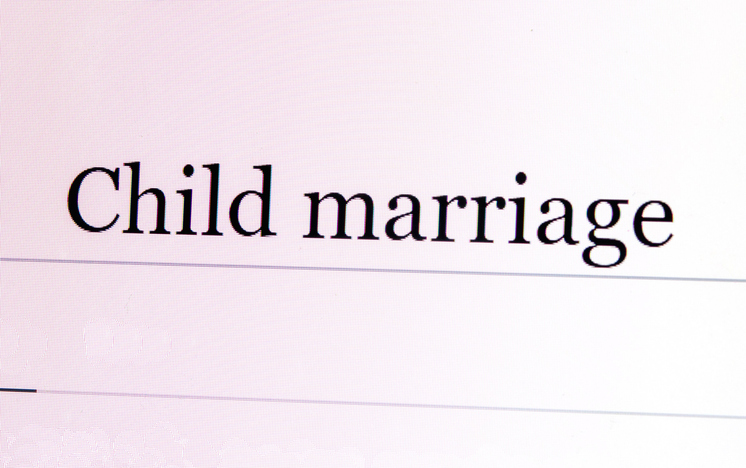Last week, the UK introduced a bill criminalising marriage and civil partnerships below the age of 18 in England and Wales. A momentous step forward, the change in law aims to eradicate a practice that prevents so many women and girls from living fulfilled lives and prosperous futures. But while the UK makes strides domestically, we know that 12 million girls at home and abroad are married early every year against their will.
Early marriage puts children at risk of violence, exploitation, and abuse. The law, a major step towards greater protection and safeguarding for children, will have a positive impact on children’s physical and mental health and wellbeing, and will allow them to finish their education.
Early marriage is often viewed as an issue only happening in the Global South and one that takes place exclusively overseas. This couldn’t be further from the truth. The reality is that child marriage is an invisible but thriving issue in Britain today. From January 2020 to December 2022, the national honour-based abuse helpline delivered by Karma Nirvana has supported 177 children facing forced marriage. Of this, 51% of the children faced being taken overseas and 32% did not know where the child marriage was planned. Since 2017, the government’s Forced Marriage Unit has recorded 1,235 cases relating to Child Marriage. It is estimated that the actual number of child marriage cases that take place or are planned in the UK is significantly higher.
New legislative changes to existing forced marriage law will help provide greater safeguarding and protection for all children and young people. But as the law becomes operational, we should not lose sight of the fact that this is also a global problem.


Many children, mostly girls, are being denied their rights and futures. Research from Girls Not Brides, found 12 million girls globally were married before their 18th birthday, or 23 girls a minute. And while significant progress has been made in the last 25 years on ending child marriage, it is now estimated that up to 10 million more girls are at risk of becoming child brides by 2030 as a result of the pandemic.
The deepening economic, conflict, and climate crises that communities across the world are facing are forcing more and more young girls into marriages that will define their lives and disrupt their futures. In countries facing humanitarian crisis, rates of child marriage have increased upwards of 20 percent. Just as one of the worst climate disasters on record and the spiralling cost of living crisis in the Horn of Africa areaffecting communities and plunging girls into early marriage, the same too could happen as communities recover from the earthquakes in Turkey and Syria.
Last year, as part of its Girl-Led research report, ActionAid worked with young women and girls in Bangladesh, Indonesia, and Ethiopia and found that many were reporting child marriage as one of the biggest issues they and their communities faced and that was exacerbated by the pandemic. The ongoing economic downturn will ensure that this remains a key concern.
But the picture is not all doom and gloom. From Norway to Tanzania, Malawi, Indonesia, and now the UK, countries are introducing statutory laws to tackle rates of child marriage. Significant progress has been made in the last 25 years on ending child marriage and despite the setbacks that the pandemic has caused in fighting gender inequality, progress is being made. In South Asia, including countries like Bangladesh where Action Aid works, between 2010 and 2020 child marriage had the largest decline of any region in the world, reducing from 49% of girls under-18 to 30%. And at the global level over 25 million marriages were prevented at the same time.
But there is a long way to go. And with only seven years left, the UN’s target of ending child marriage by 2030 is under threat. With the new law the UK stands at a fork in the road – a moment that could chart a more positive course for women and girls in the UK and globally.
The UK government has long claimed to prioritise ending child marriage around the world. However, this has historically been much more difficult whilst child marriage was permitted in the UK. Now that the UK is getting its own house is in order, the UK government will be in a stronger position to advocate for ending child marriage internationally.
Whether that’s the UK, Ethiopia, Indonesia or Bangladesh, we must all take on board and learn lessons from countries that have sharply reduced child marriage. By doing this we can ensure that every country can end the scourge of child marriage and build back stronger communities, societies and economies that build resilience against the pressures that force young girls to marry early. Only then can we work towards a world where gender equality is a reality for us all.
By Pauline Latham MP, Anne Quesney, Senior Women’s Rights Advocacy Adviser, ActionAid UK, and Natasha Rattu, Executive Director at Karma Nirvana

